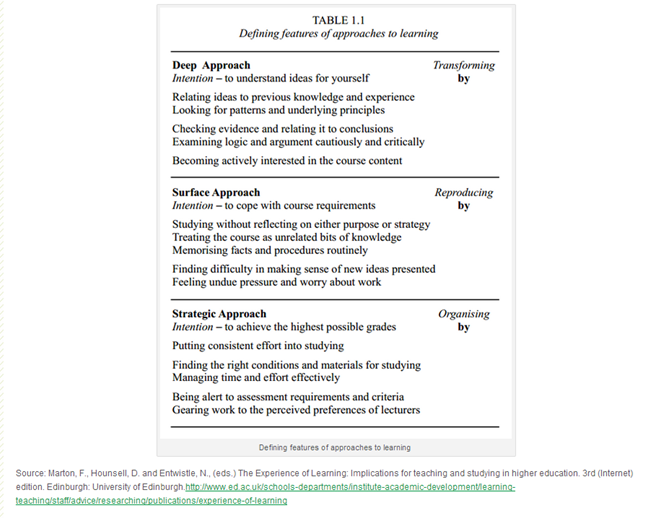Approaches to Learning
OcTEL week 2 task is to consider three approaches to
learning
Deep, Surface or Strategic
If I had to review my own approach to learning on the basis
of these category titles then I would say I had a strategic approach with a
good deal of surface activity.
But when I looked at the descriptions in the categories then
this is not the case.
I am strategic as I look at how to get the best possible result and I manage my time and effort effectively. This is influenced by two factors – one, that I have a lot of activities, work and learning to fit into the time and only a finite amount of effort and resource.
Secondly, and possibly a 'failing' here on my part is that I
see work and learning as merged and often interchangeable. For work, I'm solution focused so my usual
way of learning is also solution or result focused.
As far as a surface learning approach is concerned, I may self-assess
myself as such but the rest of the criteria doesn't fit.
So the deep learning approach – I like to understand ideas
for myself, relate ideas to previous knowledge and experience (consciously and
subconsciously) and become actively interested in the course content.
As far as considering these approaches to learners – in my
experience, it is important that learners/students, especially if they are new
to online learning and an online course, know what the course requirements are. It's essential that there is a structure and framework which
clarifies what the course is about and the learning expectations.
Then the considerations of outcomes – is it essential to
achieve a grade or qualification? If so then tailor the learning to take this
into account. Make sure that the components of the course relate to each
other, that they are not unrelated and try to find the links.
Learners are more likely to disengage if they can't see the
connections when learning online.
However one of the great advantages of online learning is
that you can push the boundaries, that you can explore more resources and more
channels of communication and more opportunities to interact and create
collaboratively.
That learners can become actively interested in the course
content and develop it to match their own approach to learning.

You make some good points here Claire. I think that it is quite difficult, if not impossible, to be a surface learnerI on a cMOOC like ocTEL - they just aren't built that way! Most of us would probably want to be taking a deep approach, at least in the areas that we have identified as of particular interest and relevance to us (remembering our big and little questions from week 0) but as you say, CPD activities like ocTEL have to fit in around busy work schedules so a strategic approach is likely to be the most common outcome.
ReplyDelete